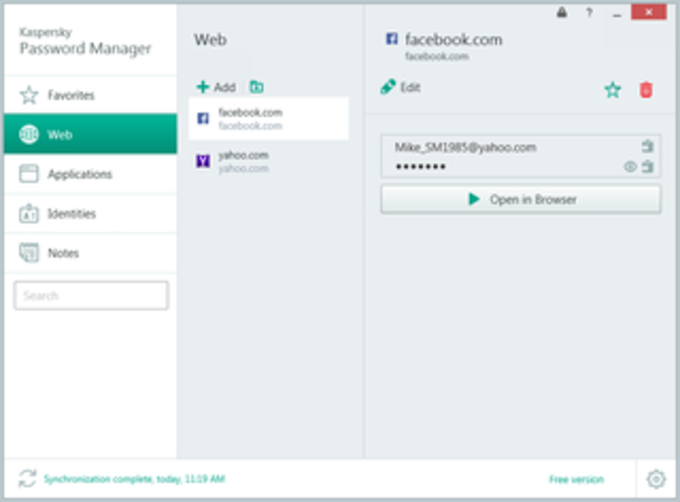
Those policies are set for password length and the characters that must be included (upper/lower case letters, numbers, special characters).

Password generation in KPG involves suggesting a password based on the policy created by the user. As a result, any passwords generated could be brute forced in a matter of minutes, and in seconds if the approximate time that the account password was created is known. In a recent blog post, researchers at security firm Donjon said the pseudo-random number generator (PRNG) used by the KPM solution was not sufficiently random to create strong passwords. Password managers often include a password generator to help users create unique, random, complex passwords for their accounts.

Security researchers have discovered the random password generator of the Kaspersky Password Manager (KPM) was generating passwords that were susceptible to brute force attacks. Flaw in Kaspersky Password Manager Password Generator Made Passwords Susceptible to Brute Force Attacks


 0 kommentar(er)
0 kommentar(er)
